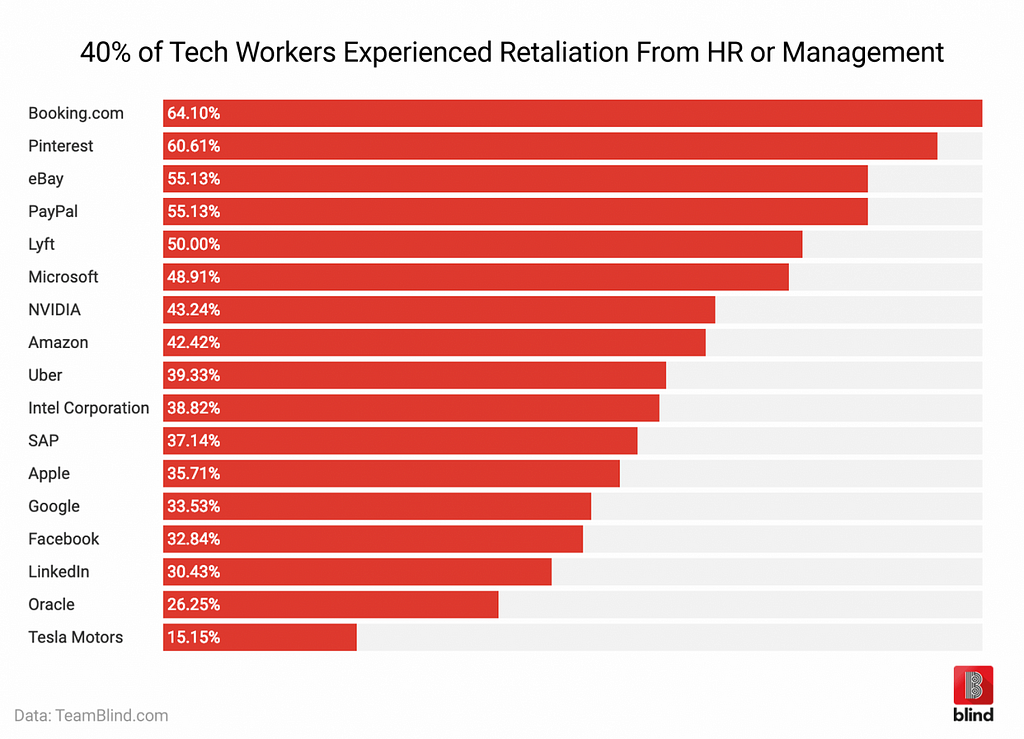Latest news about Bitcoin and all cryptocurrencies. Your daily crypto news habit.

In the wake of a litany of transgressions emanating from the ranks of HR departments and leadership teams of Uber, Google, and Microsoft ranging from discrimination, abuse, gaslighting, nepotism, anti-dissent, suppression, and retaliation against their own employees, Stans inside and outside of these same companies appear to be content with this flavor of cannibalism on a corporate scale. Despite having no ethical basis while contradicting all matter of corporate media maintaining a narrative that is blatantly contrary to this sort behavior, these same Stans seem to have justified this sort of behavior and it’s outcome as a core function of HR, damage control. It almost goes without saying, but this is fundamentally flawed on several fronts.
For starters, it’s worth highlighting that its not exactly a secret that what is good for your employees is good for business; especially when you employ them to innovate at the highest level of the industry. There isn’t a precedent or business justification for protecting incompetence and abusers at the expense of victims, dissenters, and competent employees; especially in an industry where disruption is the name of the game. There isn’t even a realm philosophy nor academic discipline that would render people wise to these tactics, let alone recommend applying them on any scale at a billion dollar technology company.
As cliche and idealistic as it may seem, the company is the macro-state of the employees within it, not just its leadership, and in order to protect the company, you have to protect the best interests of the employees as a whole above anything else; including leadership. In fact, practices to the contrary are universally frowned upon, some of which are illegal, which is most likely why departments leveraging them seem to go through exhaustive lengths to hide their application of them. Even if it weren’t illegal, employing these same cannibalistic tactics in opposition to the best interests of your employees is so laughably self-destructive to a business that no HR exec would dare publicly suggest leveraging them under any circumstance.
That said, there is a distinct difference between protecting a company and protecting abusive people within it. Aside from being flat out illegal, it doesn’t take peer-reviewed studies to anticipate the long-term effects of breaking the law in order to silence and repel talented people, many of which are among the best in their field, out of the company. This is especially the case when all of this is done in favor of managers that cannot keep their emotions and/or libido in check and need a crack legal and HR team to keep them employed as a result.
There is also a marked difference between protecting the status quo and protecting the company; especially at a technology company. Change is at the heart of what a technology company does and the mere existence of a status quo has a limiting effect on change just as it does everywhere else in life. Protecting old habits and washed up leadership seems to only serve said leadership at the expense of change and growth for the company as a whole. For an idea of how stagnating such an approach can be, simply look Microsoft’s leadership and their inability to move past the same old Windows, Office, and Server products
Needless to say, it’s difficult to see how any of this behavior can be justified as being in the best interest of the company, so much as the old-guard leadership within it. Besides the current leadership and their legal/HR departments that they’re employing to leverage these suppression tactics, who would honestly get mad at the company for protecting employees and victims (re: the company) from abusers instead of doing damage control for abusers as if they were a catholic priest? Investors? No. Employees? No.
In summary and although some seem to think that suppressing these employees benefits the company, the reality is that these companies would be heralded by employees of all decrees for protecting speech while intaking claims of abuse and dissent fairly and transparently. The outrage doesn’t seem to stem from the abuse so much as it does from the inaction and heartless responses to abuse from people that masquerade as if they care as well as the subsequent abuse that occurs under their supervision.
 Source: https://www.teamblind.com/blog/index.php/2019/03/12/40-of-tech-workers-experienced-workplace-retaliation/
Source: https://www.teamblind.com/blog/index.php/2019/03/12/40-of-tech-workers-experienced-workplace-retaliation/
On it’s best day, corporate cannibalism of this nature is a negative image of the laws as interpreted by legal counsel. But there’s a difference between the law and best practices and protecting demented people while repelling the best in the world is strategically unprecedented and has no documented benefit for companies on any scale; victim or not. In fact, such behavior only seems to be beneficial for the abusers and the people employed to protect them while those that perpetuate otherwise appear to be doing little more than justifying their own inaction. Despite this, some of the biggest companies in the world appear to partake in them as if it were dogma.
Corporate Cannibalism was originally published in Hacker Noon on Medium, where people are continuing the conversation by highlighting and responding to this story.
Disclaimer
The views and opinions expressed in this article are solely those of the authors and do not reflect the views of Bitcoin Insider. Every investment and trading move involves risk - this is especially true for cryptocurrencies given their volatility. We strongly advise our readers to conduct their own research when making a decision.
